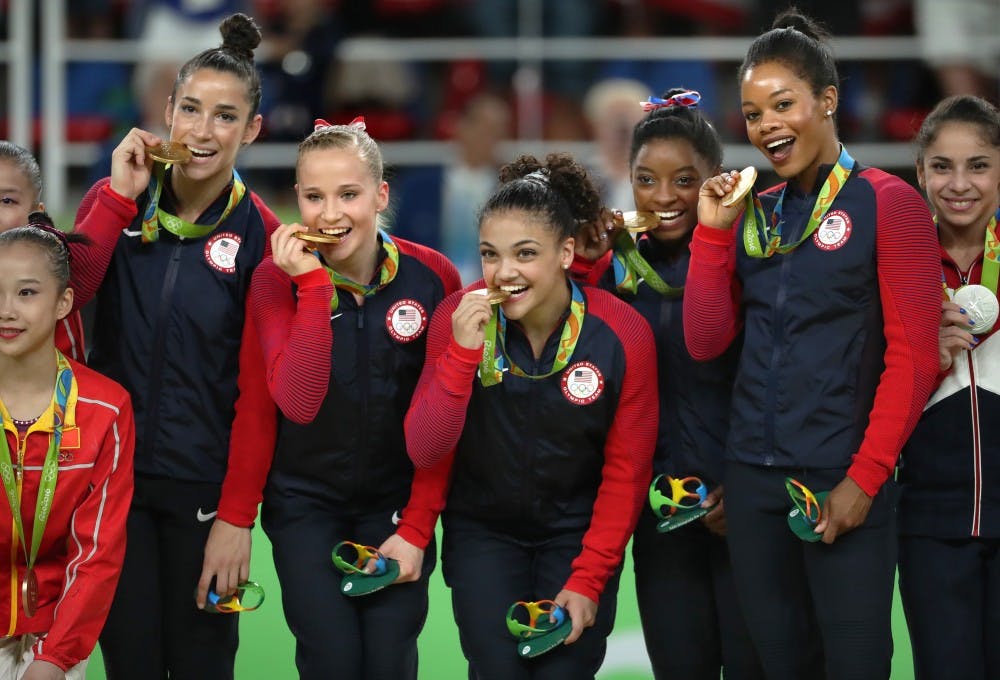Sadly, it's no news that there have been sexual assault accusations made in Hollywood, politics and pop culture in general. It seems like every day we wake up and read the news only to find that a beloved figure has been accused of a crime such as rape, assault or groping.
Harvey Weinstein, Kevin Spacey and Ben Affleck are just some of those who have been accused. Just when you think it's over, another one of your favorite Hollywood names is under the spotlight for harassment. Should I feel guilty for seeing the new "Justice League" movie or for watching "Pulp Fiction"?
"The flood of sexual assault allegations coming out of the Hollywood entertainment industry has the Los Angeles Police Department negotiating uncharted territory," Richard Winton of Los Angeles Times reported.
According to Winton's article, the Los Angeles Police Department has 28 open investigations of sexual assault connected to figures in Hollywood or media.
This is terrifying. It's terrifying that one in six American women experience attempted or completed rape. It's terrifying that our own president has been accused by 13 women of sexual assault. It's terrifying that people are defending these perpetrators. And it's terrifying being a woman in a society that seems to have normalized this culture.
Its prevalence in the news can be traumatizing for sexual assault survivors, especially when people are defending rapists and placing the blame on victims.
Mayim Bialik, a star on the hit show "The Big Bang Theory," wrote an opinion piece about the sexual dangers of Hollywood. In her writing, she included how being a pretty girl got the attention of powerful men in Hollywood and she was more of a "prominent-nosed, awkward, geeky, Jewish" girl.
"I have decided that my sexual self is best reserved for private situations with those I am most intimate with. I dress modestly. I don't act flirtatiously with men as a policy," Bialik wrote.
These words didn't settle well with many, especially victims of sexual assault. Saying things like this hints at the idea that if you don't dress modestly or if you do act flirtatiously with men, then your assault is your fault.
Many people were not happy and expressed their opinions on Bialik's piece on Twitter.
Recently, U.S. Olympic gymnast Aly Raisman came forward that she was sexually abused by the National Team doctor. Following this, she tweeted out to fans a note stating that girls should be able to feel sexy in whatever they want to wear and should not be shamed if they come forward about sexual abuse.
"STOP VICTIM SHAMING," her tweet said, "It is because of you that so many survivors live in fear."
In response to this, U.S. Olympic gymnast and former teammate of Raisman, Gabby Douglas, replied to Raisman's tweet. She said it's the woman's responsibility to "dress modestly" and that not dressing this way "entices the wrong crowd."
Douglas has since apologized, but responses like hers are one of the reasons so many women are afraid. They're afraid that if they come forward, no one will believe them or the blame will be placed on them for putting themselves in that situation.
Things like this make victims feel alone, and that perhaps if they were dressed more modestly, they wouldn't have been attacked. Actors or stars in popular culture need to understand their power and be careful when speaking publicly about sexual assault. Bialik and Douglas most likely meant to speak harmlessly on the subject, but their naive victim-shaming was hurtful to many survivors of sexual violence.
Many times, people's response to a sexual assault claim is "what was the victim wearing?" The University of Kansas created an art exhibit that displayed the actual clothes that rape victims were wearing alongside their stories.
Included in the exhibit is a tiny pink, red and white striped sundress. The victim was a six-year-old. Was the young girl asking for it then?
We must ask ourselves, could a victim ever be to blame in a case of assault or rape? We need to stop skewing the focus of blame. No one is ever "asking" to be assaulted.

